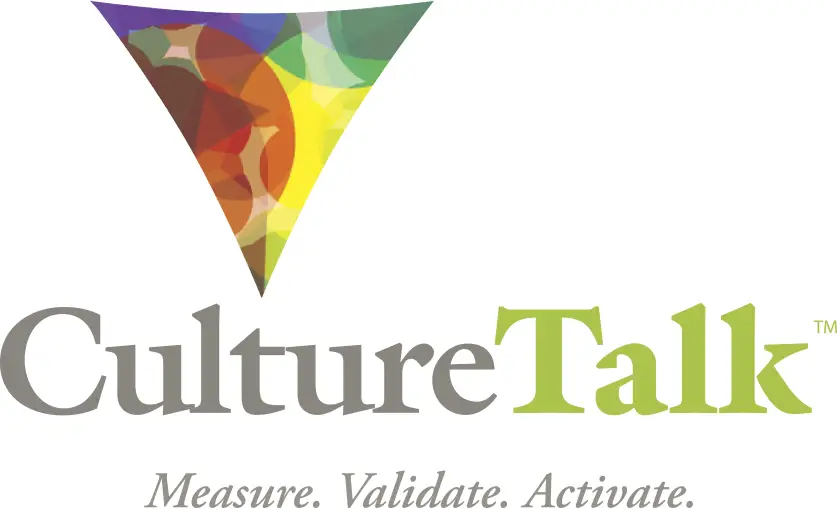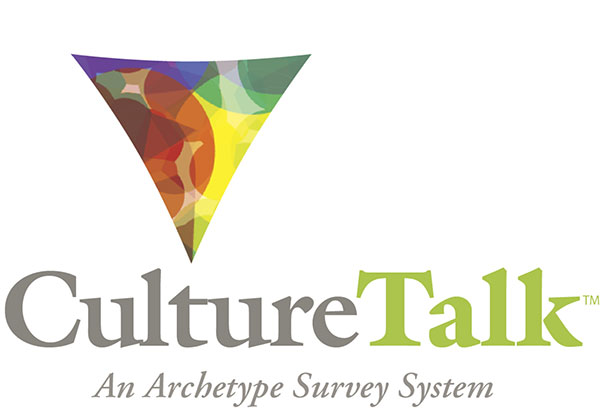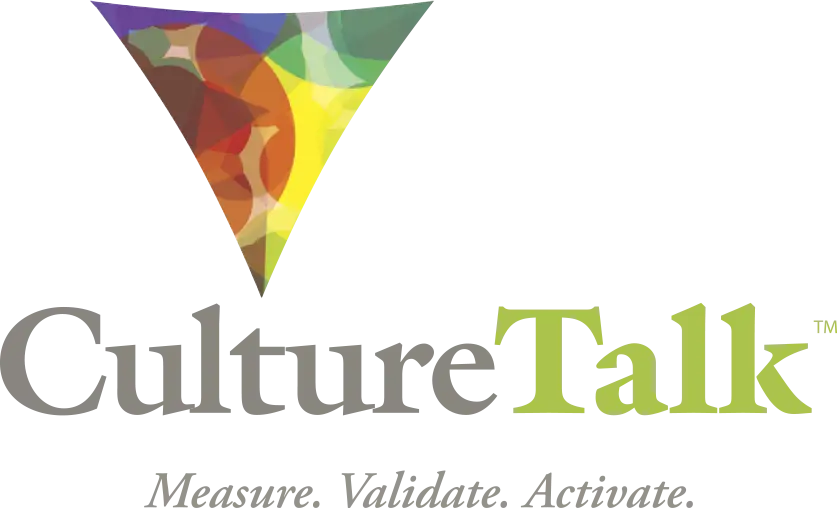Help Wanted: Dirt Bags and Dragon Slayers
- October 5, 2020
- 4:59 pm
- Cynthia Forstmann
How Patagonia’s Talent Brand Reflects its Culture
In his 2017 article, Your Internal Culture is your Brand, global trend watcher David Mattin, says:
Thanks to the radical transparency made possible by a connected world, your business is a glass box. People can see all the way inside. And that means that now the ‘brand’ is everything they see. Every person. Every process. Every value. Everything that happens, ever. There’s a single word that sums up what a person sees when they look deep inside your business: they see your culture.
Your Culture is your Talent Brand
Patagonia is often held up as an example of a company that has designed a culture they can live up to; one that is integrated into every aspect of their business, including the experiences of customers and employees.
On our recent webinar, The Culture-Talent Connection, we looked at Patagonia through the lens of three Archetypes demonstrating the alignment between their culture and their talent brand: the Explorer, the Innocent and the Hero.
Patagonia as an Explorer Archetype
Explorer is an Archetypal pattern that is about independence and freedom. In Explorer organizations, we find cultures that are moving us all forward by looking at what’s just over the horizon. Explorers are light on formal structure and large on flexibility and letting people find their own path.
In the Careers section of the Patagonia website, the Explorer Archetype comes to life. It includes an excerpt from the founder’s book called “Let my people go surfing,” that describes the ideal employee:
- We hire people who love to spend as much time as possible in the mountains or the wild.
- We seek out “dirtbags” who feel more at home in a base camp or on the river than they do in the office.
- We’ll often take a risk on an itinerant rock climber that we wouldn’t on a run-of-the-mill MBA.
Can you hear the Explorer culture in this? And also how this kind of language might appeal to a good-fit prospective employee?
Speaking of ideal Explorer employees, meet Chipper.
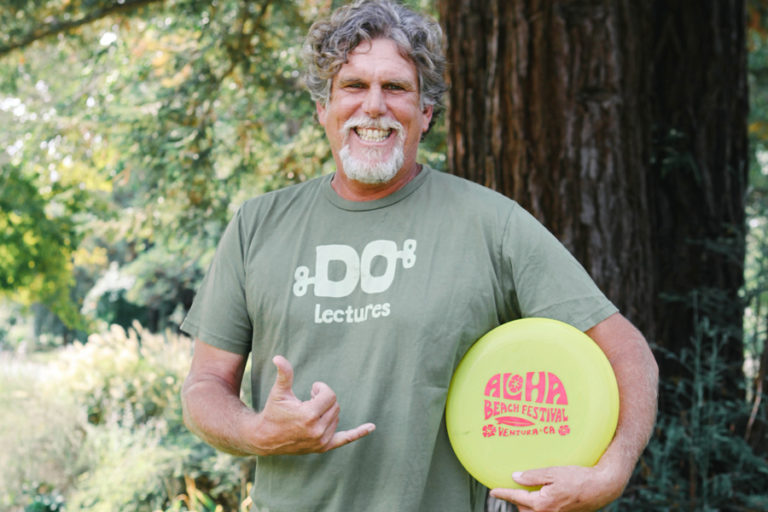
Chipper is the often seen as the face of Patagonia. He is not only the receptionist who greets visitors. He is also a Frisbee freestyle world champion and runs a surf school for special needs students. He was also the runner-up in a company-wide contest about who should run the company.
Explorer Benefits
The Explorer perspective is even experienced through core values and benefit plans that prioritize flexibility:
- Patagonia offers a “Let my people go surfing” flextime benefit which means employees can catch the good tide – as long as – the work gets done.
- The company promotes a 9/80 work week – they want employees to put in 80 hours over 9 days so that they can take 3-day weekends to go play in the wild.
- Employees can also take on an environmental internship during which time Patagonia continues to pay their salary for 2 months!
Patagonia as an Innocent Archetype
The second Archetypal pattern that is clearly part of the Patagonia culture is Innocent. Innocent is the Archetype that believes in a return to natural order and basic values. Innocents prize simplicity and optimism. We find that Innocent organizations are guided by a strong set of values – and do business in alignment with those values.
For example, sustainable business practices are a huge priority at Patagonia and we can align that value with the Innocent Archetype.
Don’t Buy This Jacket
How many companies would advertise like this? If you read the fine print, Patagonia wants to make as few jackets as possible to minimize their environmental impact.
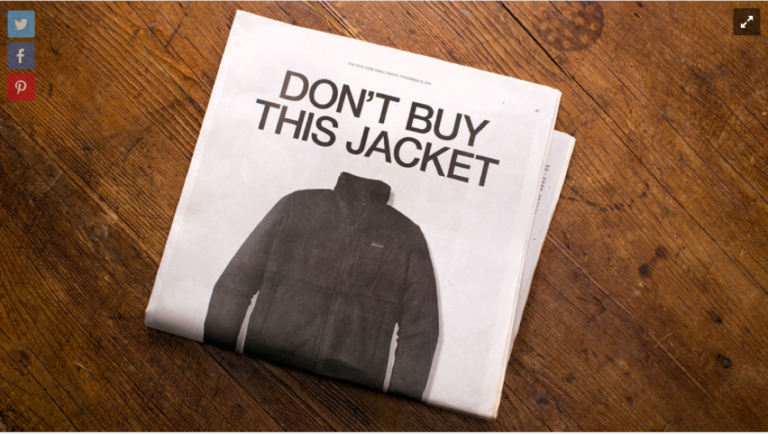
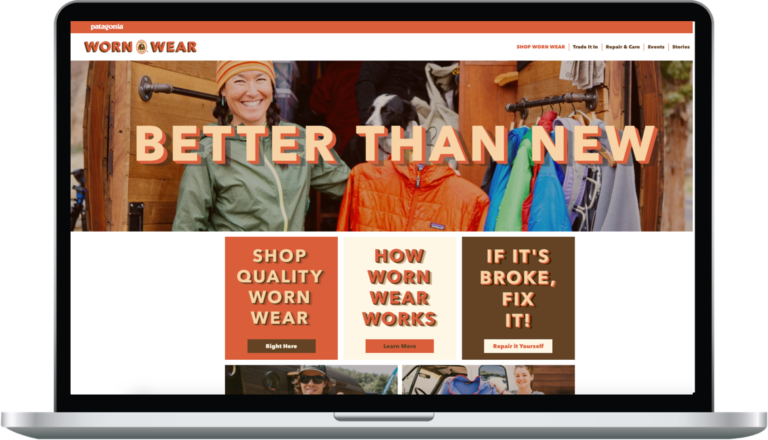
They also have a place where you can send your used Patagonia clothing where they will repair and resell used clothing at a great bargain. The message is about conservation and reuse.
Innocents Tread Lightly
Patagonia is also committed to tracking the environmental impact of their product lines. Through the Footprint Chronicles, employees where they analyze their supply chain and vendor relationships, looking for ways to reduce environmental impact.
In 2017, they held their second annual Black Friday sale where 100% of SALES (Sales not profits) were donated to environmental causes identified by employees.
Or, consider the Innocent underpinnings of this quote from Dean Carter who leads HR at Patagonia – he says:
Look at your organization’s values and have a policy that supports [them] ridiculously. If you’re not ridiculous about it, it’s likely not a value.
The Innocent’s tie to core values is something that employees experience too. Here’s a quote from one of their environmentalist, dirtbag employees who acknowledges that the ideals of the Patagonia culture are also in alignment with his personal values.
I’m an environmentalist and a conservationist. An outdoor athlete and a mountaineer. I’ve spent about six years of my life living in tents in wild places. Preserving and conserving biodiversity is so important to me. Here, I get to contribute solutions to the protection of biodiversity and the conservation of wild places. That’s closest to my heart. It’s in alignment with my personal values.
| Rick Ridgeway, VP of public engagement, Patagonia
Patagonia as a Hero Archetype
Let’s take a quick look at a third Archetype—the Hero. The Hero Archetype is activated when there is a dragon to slay. In fact, Hero cultures are at their best when there is someone to protect or principles to uphold.
Here’s what the Patagonia homepage looked like the day after the current administration reduced the size of two national monuments. Them are fighting words – the President stole your land!
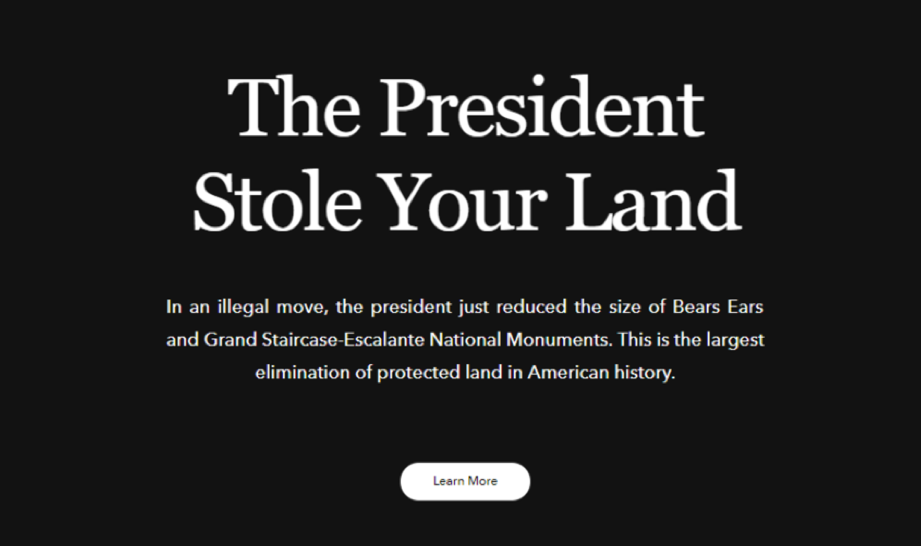
What are your Cultural Archetypes?
As the lines between culture, brand, and talent continue to blur, companies need to get serious about who they are, what they stand for, and how culture can help them stand out. Like Patagonia, there needs to build an authentic alignment between the message and the experience; an alignment that can stand up in the era of glassbox brands.
In our next blog, we’ll look at a company that identified its Archetypes through a CultureTalk Assessment, show you how they used these stories to tell their own story, and demonstrate the success its created for recruiting and retention.
Curious about our Culture Assessment and your potential Archetypes? Let’s talk!
